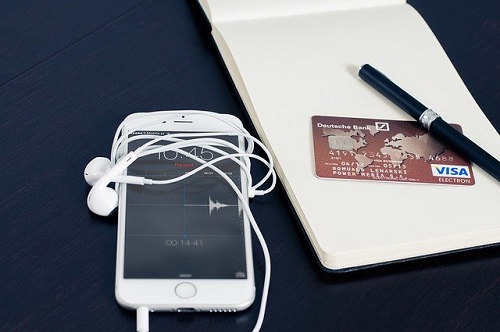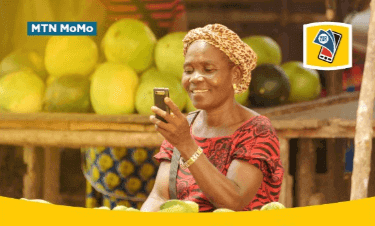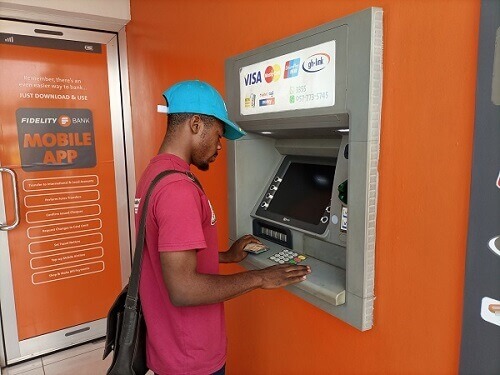Advantages And Disadvantages Of Mobile Banking In Ghana
This article will comprehensively explore the advantages and disadvantages of mobile banking, elucidating the meaning of mobile banking and providing insights into secure usage.
In contemporary society, individuals with busy schedules are increasingly leveraging the mobile banking system to conduct various financial transactions without the necessity of physically visiting a bank branch.
The ubiquity of mobile banking services has significantly streamlined access to bank accounts, with virtually every financial institution in the country incorporating this feature into their array of banking services.
What Is Mobile Banking?
Mobile banking Is an advanced technological way in the banking and finance industry customers can get access to their bank accounts through the use of their mobile phones.
Customers are then able to make all forms of transactions with their mobile phones no matter where they may be. The banking services are offered to customers through USSD applications or mobile apps that can be downloaded from mobile play stores.
Customers can get some sort of financial control when they use mobile banking since they can transact wherever they may find themselves.
Users are also able to move money from one of their accounts to the other right on their smartphones. They can also transfer money from a bank account to a mobile money account with their smartphones.
When a customer uses the mobile banking service, they can check their account balance, get access to a mini bank statement, purchase airtime, transfer money, perform transactions, and make payments on various bills as well.
Brief History Of Mobile Banking
Mobile banking represents a technologically advanced approach within the banking and finance industry, facilitating customers’ access to their bank accounts through the convenience of their mobile phones.
This innovative service empowers customers to conduct a wide array of transactions seamlessly, regardless of their location.
Mobile banking is typically offered through USSD applications or downloadable mobile apps available on mobile play stores.
The utilization of mobile banking not only provides customers with enhanced financial control but also enables them to execute transactions on the go.
Users can effortlessly transfer funds between their accounts directly on their smartphones. Additionally, they have the capability to transfer money from a bank account to a mobile money account using their mobile devices.
The versatility of mobile banking extends to features such as checking account balances, accessing mini bank statements, purchasing airtime, transferring money, conducting various transactions, and making payments for diverse bills, all from the convenience of their smartphones.
This integration of financial services into mobile platforms enhances the overall efficiency and accessibility of banking for users.
Types Of Mobile Banking
Mobile banking is categorized into three types and they are:
- App-based banking
- SMS banking
- USSD banking
How To Register For Mobile Banking In Ghana
Registering for mobile banking services is a straightforward process with various methods available for users.
One commonly employed approach is to download the designated mobile banking app provided by your bank. Upon installation, users can sign in by entering pertinent information, including their bank account number.
Alternatively, individuals can opt to register for mobile banking by visiting a physical branch of their bank.
By informing the bank staff of their intent to enroll in mobile banking, customers will be guided through all the necessary procedures to establish their mobile banking account.
These flexible registration options cater to the diverse preferences of users, offering both digital and in-person avenues to seamlessly activate and access mobile banking services.
Advantages Of Mobile Banking In Ghana
- You can access your accounts anywhere as long as you can get an internet connection on your mobile phone. Simple GSM phones even are used to access mobile banking.
- You can access your accounts through mobile banking all days of the week at any time, whether day or night. Mobile banking is not subject to the working days of the physical bank.
- You do not need an internet service all the time when accessing your accounts through mobile banking
- It is also very convenient since you can access your bank accounts right from the comfort of your home or wherever you may find yourself
Disadvantages Of Mobile Banking In Ghana
- The charges associated with mobile banking tend to be high, especially for people who make use of it regularly
- Scammers have also been reported to have duped people by sending them fake messages that looked like they were sent by the bank
How To Use Mobile Banking Safely
Avoid Fake links
Ensuring the security of your mobile banking account is of utmost importance, and one key precautionary measure is to abstain from clicking on any links purportedly sent by your bank.
This is particularly critical when such links are conveyed through text messages or emails, as they may redirect you to spoofed websites.
Spoofed websites are deceptive platforms designed to mimic legitimate banking sites, aiming to trick users into divulging sensitive information.
Therefore, it is strongly advised to exercise caution and refrain from clicking on links received via text messages or emails.
Instead, it is prudent to directly navigate to your bank’s official website or use the official mobile app downloaded from a trusted source.
By adopting this vigilant approach, you can significantly reduce the risk of falling victim to phishing attempts and enhance the overall safety of your mobile banking experience.
Avoid Banking in public
Exercising caution while using public networks, such as public Wi-Fi connections, is crucial to safeguard the security of your banking activities.
Public networks are generally less secure, creating a potential risk of unauthorized access by hackers who may intercept your connection.
It is advisable to refrain from conducting banking transactions while connected to public Wi-Fi, as hackers could exploit vulnerabilities to capture sensitive account details during the login process.
If you find it necessary to access your personal information or engage in banking transactions, it is recommended to disable the Wi-Fi connection and switch to a secure network, such as your mobile data or a trusted private Wi-Fi network.
By taking this precautionary step, you enhance the security of your mobile banking interactions and minimize the risk of unauthorized access or data interception on public networks.
Prioritizing the use of secure connections contributes to a safer and more protected mobile banking experience.
Use The Official Bank Apps
Opting for the official mobile banking app provided by your bank is a highly recommended practice for all your mobile banking requirements.
Official banking apps are designed with enhanced security features, making them a more secure option compared to alternative methods.
These dedicated apps are developed and maintained by the banks themselves, ensuring a higher level of security in the handling of your sensitive financial information.
Utilizing the official app provides a direct and encrypted connection to your bank’s servers, reducing the risk of data interception by malicious actors.
By consistently using the official app, you not only benefit from the latest security updates implemented by the bank but also minimize the likelihood of falling victim to fraudulent activities.
It is a proactive measure to enhance the overall safety and security of your mobile banking transactions.
Lock Your Phone
Maintaining the security of your mobile banking activities extends to the physical protection of your smartphone.
It is imperative to implement a lock on your phone, such as a PIN, password, or biometric authentication, to prevent unauthorized access.
This measure ensures that individuals cannot go through your phone without your knowledge, adding an extra layer of protection to your sensitive information.
Additionally, it is advisable to cultivate a habit of refraining from sharing or lending your phone to others.
This precautionary step helps to mitigate the risk of unintentional or unauthorized access to your mobile banking apps and personal data.
By combining these practices—implementing a secure lock on your phone and exercising discretion in sharing your device—you contribute significantly to the overall security of your mobile banking experience, safeguarding your financial information from potential unauthorized access.
Conclusion
The advent of the mobile banking system has indeed transformed the landscape of banking in Ghana.
This innovative approach has empowered individuals to seamlessly access their bank accounts and execute a variety of financial transactions, all from the convenience of their chosen location.
The convenience offered by mobile banking is particularly noteworthy, as it enables users to transfer funds, make purchases, and engage in various banking activities without the need to physically visit a bank branch.
This accessibility has not only simplified the banking process but has also contributed to greater financial inclusion by reaching individuals who may face challenges in accessing traditional banking services.
The mobile banking system in Ghana represents a significant leap forward in enhancing the overall efficiency and accessibility of banking services, aligning with the evolving needs and preferences of the modern consumer.






